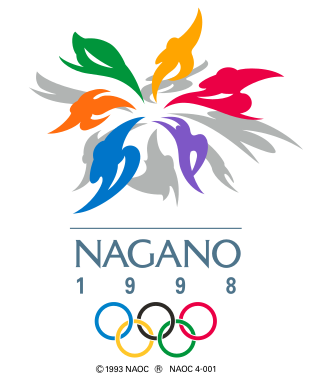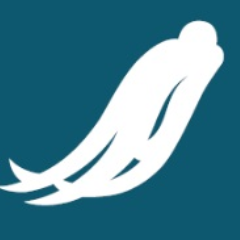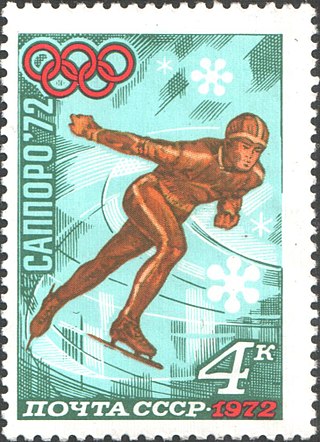
The Winter Olympic Games, also known as the Winter Olympics, is a major international multi-sport event held once every four years for sports practiced on snow and ice. The first Winter Olympic Games, the 1924 Winter Olympics, were held in Chamonix, France. The modern Olympic Games were inspired by the ancient Olympic Games, which were held in Olympia, Greece, from 776 BCE to 394 CE. The Baron Pierre de Coubertin of France founded the International Olympic Committee (IOC) 1,500 years later in 1894, leading to the first modern Summer Olympic Games in Athens, Greece in 1896. The IOC is the governing body of the Olympic Movement, with the Olympic Charter defining its structure and authority. The original five Winter Olympic Sports were bobsleigh, curling, ice hockey, Nordic skiing, and skating. The Games were held every four years from 1924 to 1936, interrupted in 1940 and 1944 by World War II, and resumed in 1948. Until 1992, the Summer Olympic Games and the Winter Olympic Games were held in the same year. A decision to change this was made in 1986, when during the 91st International Olympic Committee session, IOC members decided to alternate the Summer Olympic Games and the Winter Olympic Games on separate four-year cycles in even-numbered years. Also, at that same congress it was decided that 1992 Winter Olympics would be the last to be held in the same year as the Summer Games and that to change the rotation, the games that would be held in 1996 would be brought forward by two years, being scheduled to 1994. After those games, the next were to be held in 1998 when the four-year Olympic Cycle resumed.

The 1998 Winter Olympics, officially known as the XVIII Olympic Winter Games and commonly known as Nagano 1998, were a winter multi-sport event held from 7 to 22 February 1998, mainly in Nagano, Nagano Prefecture, Japan, with some events taking place in the nearby mountain communities of Hakuba, Karuizawa, Nozawa Onsen, and Yamanouchi. The city of Nagano had previously been a candidate to host the 1940 Winter Olympics, as well as the 1972 Winter Olympics, but had been eliminated at the national level by Sapporo on both occasions.

The 1984 Winter Olympics, officially known as the XIV Olympic Winter Games and commonly known as Sarajevo '84, were a winter multi-sport event held between 8 and 19 February 1984 in Sarajevo, Yugoslavia. It was the first Winter Olympic Games held in a Slavic language-speaking country, as well as the only Winter Olympics held in a communist country before the 2022 Winter Olympics in Beijing, China. It was the second consecutive Olympic Games held in a communist country, after the 1980 Summer Olympics in Moscow, Russian SFSR, Soviet Union.
The 1972 Winter Olympics, officially the XI Olympic Winter Games [dai dʑɯitɕi-kai oɾinpikɯ tokikʲogi taikai] and commonly known as Sapporo 1972, were a winter multi-sport event held from February 3 to 13, 1972, in Sapporo, Hokkaido Prefecture, Japan. It was the first Winter Olympic Games to take place outside Europe and North America.
The 1972 Winter Olympics, officially known as the XI Olympic Winter Games, was a winter multi-sport event held in Sapporo, Japan, from 3 to 13 February 1972. A total of 1,006 athletes representing 35 National Olympic Committees (NOCs) participated in 35 events from 10 different sports and disciplines.

The 1956 Winter Olympics, officially known as the VII Olympic Winter Games, was an international multi-sport event held in Cortina d'Ampezzo, Italy, from 26 January to 5 February 1956. A total of 821 athletes representing 32 National Olympic Committees (NOCs) participated. The games featured 24 events in 4 sports across 8 disciplines.

Luge at the 1998 Winter Olympics consisted of three events at Spiral. The competition took place between 8 and 11 February 1998.

The men's ice hockey tournament at the 1972 Winter Olympics in Sapporo, Japan, was the 12th Olympic Championship. Games were held at the Makomanai Ice Arena and at the Tsukisamu Indoor Skating Rink. The Soviet Union won its fourth gold medal. The United States won the silver, while Czechoslovakia won the bronze. Canada did not send a team to the event for the first time since ice hockey was first competed at the Olympics in 1920, instead competing with and defeating the Soviets in a competition later that year known as the Summit Series. Canada would not send a men's hockey team to the Olympics until 1980.
Luge at the 1988 Winter Olympics consisted of three events at Canada Olympic Park. The competition took place between 14 and 19 February 1988.
Luge at the 1980 Winter Olympics consisted of three events at Mt. Van Hoevenberg Olympic Bobsled Run. The competition took place between 13 and 16 February 1980.
Biathlon at the 1972 Winter Olympics consisted of two biathlon events, held at Makomanai Biathlon Site. The events began on 9 February and ended on 11 February 1972.
Nordic combined at the 1972 Winter Olympics consisted of one event, held from 4 February to 5 February. The ski jumping portion took place at Miyanomori Ski Jump Stadium, while the cross-country portion took place at Makomanai Park.
Ski jumping at the 1972 Winter Olympics consisted of two events held from 6 to 11 February 1972, with the large hill event taking place at Okurayama Ski Jump Stadium, and the normal hill event at Miyanomori Ski Jump Stadium.

Speed skating at the 1972 Winter Olympics, was held from 4 to 12 February. Eight events were contested at Makomanai Open Stadium in Sapporo, Japan. This was the first Olympics at which electronic times were recorded to the hundredth of a second.
Luge at the 1984 Winter Olympics consisted of three events at Sarajevo Olympic Bobsleigh and Luge Track. The competition took place between 9 and 12 February 1984.
Luge at the 1976 Winter Olympics consisted of three events at Olympic Sliding Centre Innsbruck. The competition took place between 4 and 7 February 1976.
Walter Plaikner is an Italian former luger and coach of Austrian descent who competed in the late 1960s and early 1970s. He was a doubles specialist, and competed alongside Paul Hildgartner. They won the gold medal in the men's doubles event at the 1972 Winter Olympics in Sapporo. Plaikner also competed at the 1976 Winter Olympics in Innsbruck, where he finished 11th in the doubles after suffering from a severe bout of flu. He retired from competition after the Games.
For the 1972 Winter Olympics in Sapporo, Japan, a total of twelve sports venues were used. A thirteenth venue which was a reserved luge course was constructed, but never used in actual competition. Construction on all of the venues used took place between 1968 and early 1971 in time for the test events. The Tsuskisamu Indoor Skating Rink was not completed until late 1971 or early 1972 because the number of teams scheduled to compete at the 1972 Games was not known. At the actual luge venue used, a malfunctioning starting gate during the first run led to the results being cancelled and rerun being ordered. The results of this event led to the only tie in Olympic luge history. The ski jumps at Miyanomori and Okurayama served as host venues for the FIS Nordic World Ski Championships thirty-five years later.
The Doubles luge competition at the 1972 Winter Olympics in Sapporo was held on 10 February, at Sapporo Teine. A malfunctioning starting gate cancelled the results of the first run. Italy, whose doubles team of Paul Hildgartner and Walter Plaikner won the first run, protested to event officials the results should stand since all contestants had suffered equally, but to no avail. After the protest was denied, a rerun was ordered.








